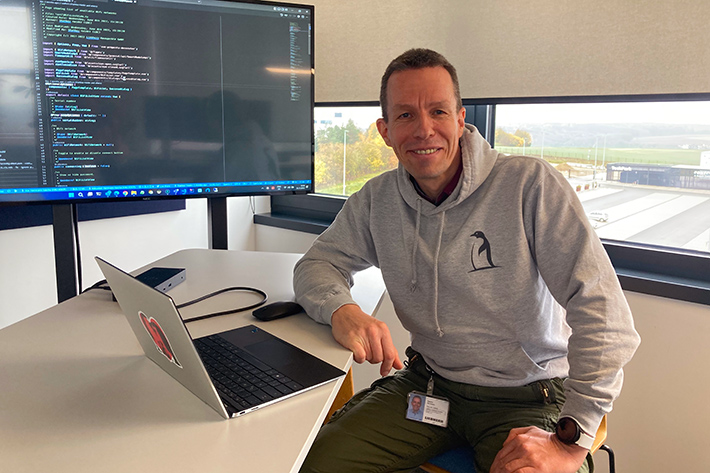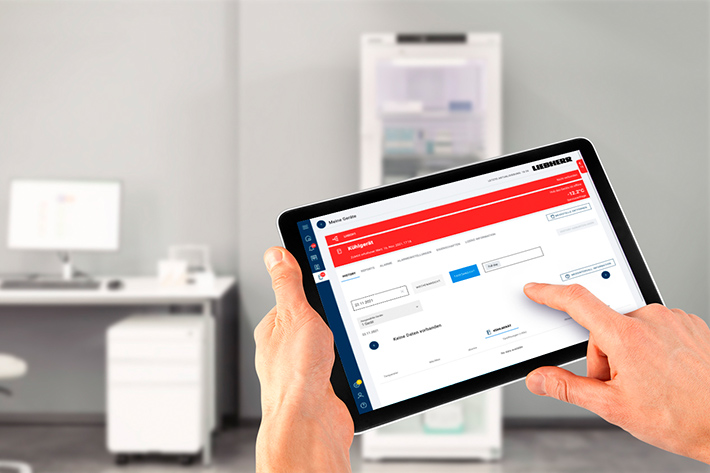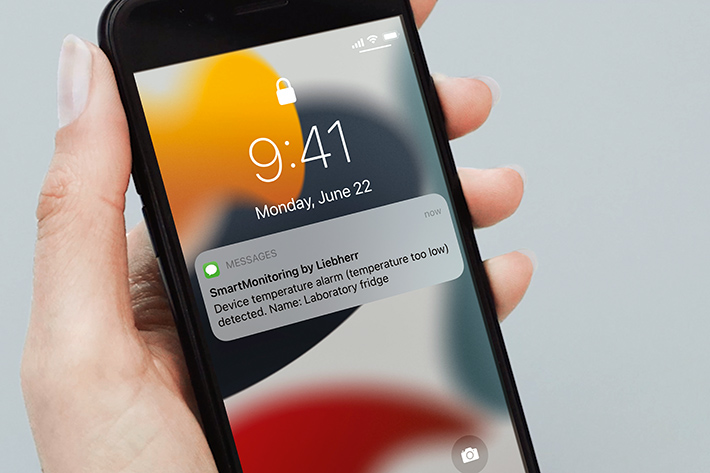Mr Herrmann, what is SmartMonitoring for medical refrigerators and what is it used for?
SmartMonitoring is Liebherr's cloud solution for monitoring the temperature of refrigerators in laboratories, hospitals or doctors' surgeries. With a conventional refrigerator in a kitchen, it is not that bad if you leave the door open for too long or if the temperature inside the appliance changes while you are putting away the groceries. In the medical field, things are quite different. Here we are talking about the professional and safe storage of medicines, vaccines and samples that require reliable refrigeration. Even the slightest deviations in temperature can have consequences for the treatment of patients or research in laboratories. SmartMonitoring therefore sounds the alarm if something is wrong and immediately notifies the user.
In which cases does SmartMonitoring trigger an alarm?
This happens when the temperature deviates from the temperature range set by the user. Depending on the contents of the refrigerator, this range can be adjusted so that an alarm is sent to the customer if there is a deviation of, for example, plus-minus 0.5 degrees. SmartMonitoring also warns if a refrigerator door is not closed properly or if the power fails in the doctor's office.
What happens in this monitoring system in the event of a power failure?
Behind SmartMonitoring lies a comprehensive cloud infrastructure that is managed by three Liebherr teams. Besides my team, there is also a pure cloud team and an infrastructure team. The refrigerators are connected to this cloud via our SmartCoolingHub and send monitoring data that is continuously evaluated. If the power should ever fail in a medical practice, the system registers that the SmartCoolingHub is no longer accessible and immediately sends a message to the cloud. This triggers an alarm that is sent directly to the user via email, SMS or voice message. This gives our customers a high level of security and monitoring and they can react quickly at any time.
Continue reading ...
Read the full interview with Sascha Herrmann here



